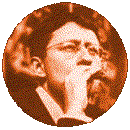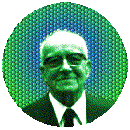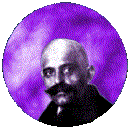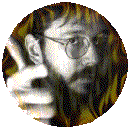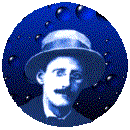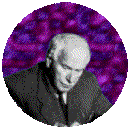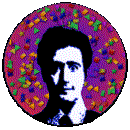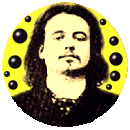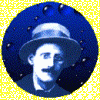"Pure entertainment is not an egotistical lady singing boring songs onstage for two hours and people in tuxes clapping whether they like it or not. It's the real performers on the street who can hold people's attention and keep them from walking away."
Field: Performance artist, comedian.
Born: 17 January 1949, New York City.
Background: Kaufman graduated from high school in 1967 and received a 4-F deferment from the draft after failing the psychological portion of the test. While studying television and radio production at Boston’s Grahm Junior College, he wrote, produced, directed, and starred in his own program Uncle Andy’s Funhouse on a campus TV station. In 1971, Kaufman was "discovered" by Budd Friedman (owner of The Improv), and began performing at the Improv locations in both New York and Los Angeles, confronting his often confused audiences with his own strange brand of performance art. He made his national television debut in 1974 on The Dean Martin Comedy Hour. In 1975 he auditioned for a new comedy program called Saturday Night Live, and made his first of 14 appearances on the show during its first-ever broadcast on October 11, 1975 (when he lip-synched "The Theme from Mighty Mouse"). Kaufman also made memorable TV appearances on Van Dyke and Company, The Tonight Show, The Mike Douglas Show, The Dating Game, and the comedy show Fridays, but the role he became most well known for was Latka Gravas, the auto mechanic on the hit sitcom Taxi (1978-1983). As a condition of his employment, Kaufman convinced the producers of the show to cast his so-called "protégé," the smarmy Las Vegas lounge singer Tony Clifton (another one of Kaufman’s alter egos) in two episodes. "Clifton" was soon fired for unprofessional behavior. Kaufman went to some lengths to maintain that he and Clifton were two separate people; his best friend and fellow comedian Bob Zmuda eventually took over the character and even appeared as Clifton after Kaufman’s death. In another dubious achievement, Saturday Night Live viewers voted 195,544 to 169,186, in a live, call-in ballot in November 1982, to keep Kaufman permanently off the show. In January 1984, Kaufman was diagnosed with a rare form of lung cancer. He had never smoked, and some even accused the consummate performer of faking his illness, even in its most advanced stages. He died on May 16, 1984, in Los Angeles, at the age of 35. After his death the legend of Andy Kaufman lived on, and to this day many people believe that the enigmatic comic is still alive.
Works: See above, and watch for reruns!
Biographies: Man on the Moon (Universal 1999), A Comedy Tribute to Andy Kaufman (NBC 1995), Andy Kaufman Revealed! Best Friend Tells All by Bob Zmuda, and Life in the Funhouse: The Life and Mind of Andy Kaufman by Bill Zehme.
Lesson: The Negative becomes Positive through Pathos and Awe. The Positive becomes Negative through Disgust and Rage. You can keep this up for quite some time.

